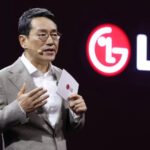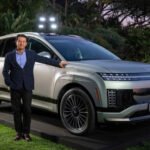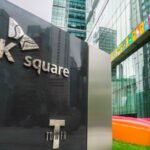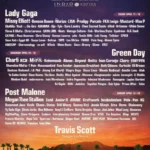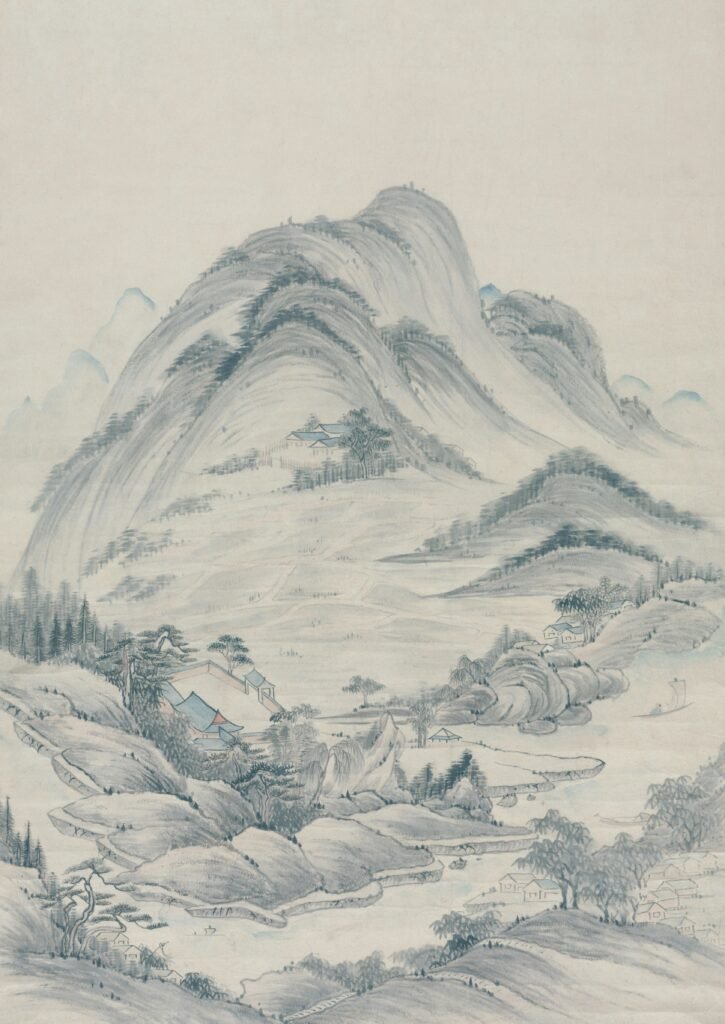The IONIQ 6 electric sedan that Hyundai Motor began producing at its Singapore plant, HMGICS, in July
South Korea’s top automaker Hyundai Motor Group said on Sunday its vehicle sales in Singapore, an advanced innovation hub in Asia, more than doubled in the first half of this year from a year earlier, driven by its electric vehicles such as the IONIQ 5.
Citing data from Singapore’s Land Transport Authority (LTA), the Korean automotive group said new vehicle registrations in the Asian country of its two automaking units – Hyundai Motor Co. and Kia Corp. – reached 1,557 units in the January-June period, up 106% from a year earlier.
Hyundai Motor, in particular, saw a 182.6% surge in registrations, totaling 941 vehicles.
Hyundai Motor Chairman Chung Euisun (fourth from left) and other company executives with an IONIQ 5 robotaxi at the ceremony commemorating the completion of the automaker’s Singplare plant, HMGICS, in November 2023
Although the volume appears relatively small, Hyundai said the results are “a significant achievement,” given that in Singapore the cost of purchasing a new car is among the highest in the world.
Singapore also has strict regulations that require people to have a certificate of entitlement (COE) to purchase a new car – a policy aimed at controlling urban pollution and traffic congestion.
The COE can only be acquired through auctions held twice a month, and the cost of purchasing cars with engines above 1,600 cc can reach 100,000 Singapore dollars (US$76,652).
Additionally, vehicle buyers have to pay taxes such as registration fees and road usage fees.
Robot arms at the IONIQ 5 assembly line of the Hyundai Motor Group Innovation Center Singapore (HMGICS)
HMGICS, HYUDAI’S R&D CENTER-CUM-PRODUCTION FACILITY
Hyundai Motor attributed its strong first-half vehicle sales to the Hyundai Motor Group Innovation Center Singapore (HMGICS), one of the carmaker’s innovation labs worldwide.
https://www.kedglobal.com/future-mobility/newsView/ked202010130018
HMGICS, which opened last November in the Jurong district of western Singapore, also serves as an electric vehicle manufacturing facility.
The Korean automaker produces the IONIQ 5 electric crossover and robotaxis based on the IONIQ 5 at the innovation center. In July, the company also began producing the IONIQ 6 electric sedan there.
Pope Francis arrives to visit a group of sick and elderly people at Saint Theresa’s Home in Singapore on Sept.13, 2024 (Courtesy of Yonhap)
Notably, Pope Francis used the IONIQ 5 Prestige produced at HMGICS as his Popemobile in Singapore when he visited the country last month as part of his 12-day trip to the Asia-Pacific region.
The 58 kWh Prestige model can travel 6.6 km per kWh, with a maximum range of about 380 km on a single charge. It can reach an 80% charge from 10% in 18 minutes.
PARTNERSHIP WITH SINGAPORE’S EV CHARGING FIRMS
Hyundai Motor aims to strengthen its position in Singapore, a market with high entry barriers for new cars, by focusing on eco-friendly vehicles such as electric cars.
Hyundai Motor Chairman Chung (fifth from left) and other executives at a ceremony for the opening of Hyundai Motor Group Innovation Center Singapore (HMGICS)
Its sister firm Kia is also targeting the local market by introducing the EV9, its large electric SUV, to Singapore in January.
Kia has also launched the Niro EV and Carnival Hybrid in Singapore.
To enhance its presence in Singapore, Hyundai Motor Group is also aggressively expanding the EV infrastructure by forging partnerships with 17 local charging service providers.
The Kia EV9
Singapore aims to convert all vehicles into eco-friendly models, such as electric, hydrogen fuel cell and hybrid vehicles, by 2040.
As part of such efforts, half of the country’s 6,000 diesel-powered public buses will be replaced with electric buses by 2030.
Starting in January next year, the registration of new diesel-powered vehicles, including taxis, will be banned.
By Jin-Won Kim
jin1@hankyung.com
In-Soo Nam edited this article.

